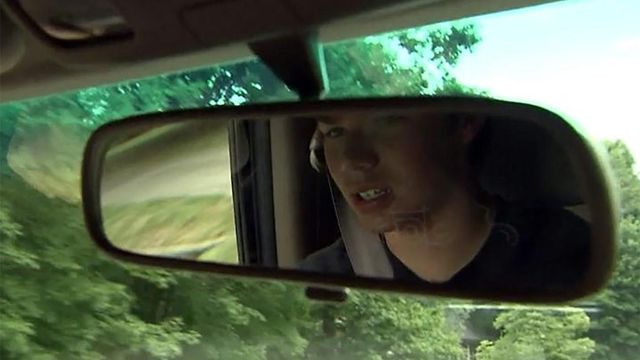Bad grades are costing some NC teens their driver's licenses
A state law that ties driving privileges to school grades is hitting home for hundreds of North Carolina teens who weren't even born when it was passed nearly 25 years ago.
Posted — UpdatedTo encourage students to complete high school, the law requires that a driving permit or license be revoked for anybody under age 18 if he or she drops out or is unable to maintain adequate progress, which is defined as passing 70 percent of all courses.
Landon Brewer, 16, had an April 6 appointment to get his driver's license, but that is now off. His mother, Amanda Brewer, said she recently got a letter from the principal of Louisburg High School, saying that his driving permit will be suspended because he is failing classes.
"If his grades are not passing come June," Amanda Brewer said, "they would not revisit this again until January."
The state Department of Transportation said that 858 teens had their driving privileges suspended under the law in the last year.
"It’s just not right. It’s not fair to any child, not during this time," Amanda Brewer said.
She said online classes during the coronavirus pandemic contributed to her son's poor grades.
"I think that should be a parent’s right. I think we should make that call whether he drives or not," Amanda Brewer said.
Her son agrees.
"I don’t think the school should have anything to do with this," Landon Brewer said.
He said he needs to drive because he serves as a volunteer firefighter with the White Level Fire Department in Franklin County. Without a car, he cannot respond to calls, he said.
"I just want to go work and do stuff," he said. "I can’t do none of that. I don’t have a ride."
A state Department of Public Instruction spokesman said the agency is talking with lawmakers about possible changes to the law. Until then, he said, DPI is advising school systems to be as lenient as possible when carrying out the law.
Related Topics
• Credits
Copyright 2024 by Capitol Broadcasting Company. All rights reserved. This material may not be published, broadcast, rewritten or redistributed.





